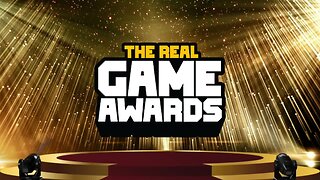May 26, 2024
From the early days of arcade cabinets to the expansive virtual worlds we explore today, video game music has been an integral part of the gaming experience. It's the beating heart that sets the mood, builds immersion, and creates an emotional connection between the player and the game. As technology has advanced, so too has the complexity and artistry of video game soundtracks.
The Evolution of Gaming Music
In the early years of gaming, soundtracks were limited by the technology of the time. Chiptune and 8-bit music, with their distinctive bleeps and bloops, defined the sound of classic games like Super Mario Bros. and The Legend of Zelda. As gaming hardware became more sophisticated, so did the music.
The rise of CD-based gaming in the 90s allowed for higher-quality audio and more complex compositions. This era gave us iconic soundtracks like those of the Final Fantasy series, composed by the legendary Nobuo Uematsu. Today, video game music spans a wide range of genres, from sweeping orchestral scores to electronic and synth-based tracks.
The Impact of Music in Video Games
A well-crafted soundtrack can elevate a game from mere entertainment to a truly immersive experience. Music has the power to convey emotions, set the pace, and create a sense of place. It can make you feel the adrenaline rush of a high-speed chase, the tension of a stealthy mission, or the wonder of exploring a vast open world.
Many gamers form strong emotional connections to their favorite video game soundtracks. These songs become tied to memories of epic battles, heartfelt moments, and the thrill of victory. Long after the game is finished, the music lives on as a nostalgic reminder of the journey.
Notable Video Game Music Composers
Behind every great video game soundtrack is a talented composer. Some of the most renowned names in the industry include:
Koji Kondo, known for his work on the Super Mario Bros. and The Legend of Zelda series
Nobuo Uematsu, the mastermind behind the music of the Final Fantasy games
Yoko Shimomura, who composed for Kingdom Hearts and Street Fighter II
Jeremy Soule, creator of the epic scores for The Elder Scrolls series and Guild Wars
These composers, among many others, have left an indelible mark on the world of video game music. Their melodies have become as iconic as the games themselves.
The Diversity of Video Game Music Genres
One of the most exciting aspects of video game music is its sheer variety. From the retro charm of chiptune to the grandeur of orchestral scores, there's a sound for every taste and mood. Electronic and synth-based music has also found a home in gaming, particularly in genres like racing, fighting, and rhythm games.
Many video game soundtracks draw inspiration from a wide range of musical styles, including rock, jazz, hip-hop, and world music. This diversity reflects the increasingly global nature of the gaming community and the desire to create unique, immersive audio experiences.
The Growth of the Video Game Music Industry
As the gaming industry has grown, so too has the market for video game music. Soundtracks are now released as standalone albums, often featuring bonus tracks and remixes. Live concerts and events, such as the Video Games Live tour, showcase the best of video game music performed by full orchestras.
The recognition of video game music as a legitimate art form has also increased in recent years. The Grammy Awards now include a category for Best Score Soundtrack for Video Games and Other Interactive Media, acknowledging the skill and creativity of game composers.
FAQ (Frequently Asked Questions)
What was the first video game to feature music?
The first video game to feature continuous background music was the 1978 arcade game Space Invaders. The simple four-note loop created a sense of tension and urgency that complemented the gameplay.
Can I listen to video game music outside of playing the game?
Absolutely! Many video game soundtracks are available for purchase or streaming on platforms like Spotify, iTunes, and Bandcamp. You can also find countless fan-made remixes and covers online.
Are there any educational benefits to listening to video game music?
Studies have shown that certain types of video game music can improve concentration, reduce stress, and enhance spatial reasoning skills. The music of puzzle games, in particular, has been linked to increased cognitive performance.
From humble beginnings to a thriving industry, video game music has come a long way. It continues to evolve and inspire, proving that gaming is as much about the sound as it is the visuals. So the next time you boot up your favorite game, take a moment to appreciate the music that brings it to life.
-
 1:12:22
1:12:22
Side Scrollers Podcast
10 hours agoThe Real Game Awards: Official Live Stream
72.5K7 -
 59:48
59:48
The StoneZONE with Roger Stone
3 hours agoJanuary 6 Victim Jeremy Brown Still in Jail Despite Trump Pardon | The StoneZONE w/ Roger Stone
40.5K9 -
 1:45:44
1:45:44
megimu32
5 hours agoON THE SUBJECT: Make 90s Movies Great Again
34.6K5 -
 59:46
59:46
Man in America
11 hours agoAI mRNA Vaccines, Turbo Cancer & Blood Clots... What Could Go Wrong?! w/ Tom Haviland
18.5K12 -
 1:09:15
1:09:15
Precision Rifle Network
1 day agoS4E3 Guns & Grub - Trump a new era for gun rights?
25.7K4 -
 1:05:31
1:05:31
Glenn Greenwald
6 hours agoSection 702 Warrantless Surveillance Ruled Unconstitutional: Press Freedom Advocate Seth Stern Explains; The Rise of Unions & the Impact of Trump's Populism with Author Eric Blanc | SYSTEM UPDATE #395
73.9K83 -
 1:01:13
1:01:13
The Amber May Show
5 hours ago $1.24 earnedWomen Of Rumble | Amber, Kelly and Wendy Wild
25K2 -
 1:16:38
1:16:38
Josh Pate's College Football Show
7 hours ago $1.11 earnedCFP Title Viewership | JP Poll Under Attack | Bama & Oregon Season Grades | Most To Prove In 2025?
28.1K -
 LIVE
LIVE
VOPUSARADIO
11 hours agoPOLITI-SHOCK! "THE TIDE IS TURNING"! 3 SPECIAL GUESTS JOINING US TONIGHT!
158 watching -
 52:47
52:47
Kimberly Guilfoyle
9 hours agoDismantling DEI Once and For All, Live with Tyler O’Neil & Eric Deters | Ep.190
86.7K32
